Introduction
Have you ever eaten a large meal and still not felt satisfied?
It could be that your body is not able to utilize food for fuel properly.
This frightening possibility can lead to long-term damage to the body and brain and lead to Alzheimer’s and other chronic diseases.
This week on The Goodness Lover Podcast, we find HOPE with Dr. Ritamarie Loscalzo - Chiropractor, Nutritionist, and Founder of The Institute of Nutritional Endocrinology.
Were you aware that you don’t have to be diabetic to take your blood sugar reading?
Listen along as Dr. Ritamarie explains how fighting chronic inflammation by monitoring your blood sugar can help control your mood and promote lifelong health!
Watch the Interview:
Listen along to discover:
🧠 Why Alzheimer's Disease is referred to as Type 3 Diabetes.
💪 How genetics and epigenetics affect your ability to digest carbohydrates and use them for fuel.
🩸 Why increasing your protein intake does not actually regulate your blood sugar.
🍽 How many meals a day you should be eating.
🍵 The best way to start your morning with low-glycemic foods.
And much more!
Additional Resources
To connect with Dr. Ritamarie and discover more of her work, you can find her on Instagram and Facebook. You can also visit her website here.Transcript
Sarah: Hello and welcome back to Goodness Lover Live. Today we're talking to Dr. Ritamarie about blood sugar and why you really need to get it under control and why eating more protein might not be the solution. Let's get into it. Ritamarie, it is wonderful to be with you today to talk all about blood sugar and its impact on mental health. Thank you for joining us.
Dr. Ritamarie: Absolutely. It's one of my favorite topics, so excited to be here.
Sarah: Great. When it comes to blood sugar, a lot of people are aware, obviously, on its impact on diabetes, maybe weight gain, or things like that. But mental health isn't usually at the top of the list of what people think of, maybe outside of being hangry. Maybe Dr. Ritamarie, you could start us off with telling us, how is blood sugar so related to mental health and why should we be aware of that connection?
Dr. Ritamarie: Absolutely. Blood sugar imbalances, the ups and the downs, are actually related to not being able to get enough sugar into the brain. When we can't get enough sugar into the brain, we feel kind of off. So depression is actually decreased function of certain parts of the brain, the neurotransmitters. We have lower functioning there, so which that can lead to depression. But the things that most people don't realize is that when we have blood sugar imbalances, we have a dysregulation of a hormone called insulin. Insulin is what helps the sugar go from the blood, into the cells, brain included. When we have a dysregulation there and the insulin is not helping the sugar to get into the cells, there's resistance at the cellular level, we can't fuel the brain. We can't fuel the brain. And there's a lot more. The brain can become insulin resistant. When the brain becomes insulin resistant, we can get really dreadful things like Alzheimer's.
Matt: Interesting. Wow. Okay. So yeah, this would be so applicable to so many people, because we know a lot of people in our space that are struggling with anxiety. They don't make that connection... We'll just start with anxiety, for example, they don't make that connection between blood sugar and their mood, and actually triggering a unwanted response in their hormones. Can you walk us through what would potentially happen with an unwanted blood sugar response and someone's mental health?
Dr. Ritamarie: Yeah. Blood sugar is supposed to maintain in a very specific range, and it's actually a very tight range for it to be healthy. When the blood sugar goes out of that range, we create problems. We create this surge of insulin. The insulin, the surge then causes the cells to become resistant to them. When the cells are resistant, then the blood sugar stays high. It's very interesting because a lot of people associate high blood sugar with all the problems. But really low blood sugar, but even low blood sugar with the problems is actually what people like, "Oh, I feel hangry. I feel irritable. I feel cranky." But really, when the blood sugar is high, it causes the same problems because the sugar is in the blood, not in the cells. The sugar is in the blood, not in the brain. You go, "Oh, my blood sugar is 180. Why would I feel hungry and irritable and cranky?" It's because your blood sugar is 180. It's in the blood. It's not getting into the cells where it needs to come. So that's one of the biggest issues with it.
Matt: Wow. If you have someone that's walked into your clinic, or you're doing one-to-one with someone, or you're teaching on this, where do you start with that sort of problem? How do you teach people the basics of controlling their blood sugar to improve their mood?
Dr. Ritamarie: Well, it's certainly diet is huge, but I get them to measure. I mean, measuring your blood sugar is such an easy thing to do. And it's like a $15 piece of equipment. Maybe not in Australia, maybe it's more. But it can't be much more. It's very inexpensive. You can buy it at the local Walmart. You can buy it on Amazon. You basically test your blood sugar and see how is it reacting to certain foods? A lot of people think, "Oh, I'm on a healthy plant-based diet," for example. "I'm healthy. Why should I have a problem with my blood sugar?" Well, in reality, a lot of people on a "healthy" plant-based diet are not really on a healthy plant-based diet. They're on a plant-based diet that's very high in carbs and they don't distinguish even between whole carbs and refined carbs. But even so, depending on a lot of factors, your genetic factors, your early childhood development, whether you were breastfed or not, all play into how your body manages sugar. If you are on a plant-based diet and, say, you're eating sandwiches and pizzas, I mean, say, you're on a junky plant-based diet, that's definitely going to cause a problem. But even a "healthy" plant-based diet, for some people who don't process carbohydrates properly, can cause problems. And it causes the ups and the downs. That's where testing is so important. I hold my fingers because you use a little needle and prick your finger and put it on a strip. It tells you immediately what your blood sugar is. You can monitor, this is what I teach people to do, is how to test your blood sugar in the morning. Sure, that's what medicine does. But that's not the only time you need to test it. You need to test it every so often, like up until a couple of hours after eating. For example, your sugar will go... Say, you're at a baseline. That's your fasting glucose. Say, you eat a meal, the sugar is going to go up, and depending on what's in the meal and how well your body processes it, it goes up to a certain level and then it peaks, and then it comes back down again. Where it peaks is extremely important. In Western medicine, the diabetics are told to test your blood sugar and then test it two hours after you eat. And as long as it's 140 or below, you're doing fine. Well, in reality, it should never go to 140. If it's going to 140, you have a problem. It should really never go above 110, 120 at the absolute most. And so, if they're testing it two hours later, usually they're past their peak. So if it's 140 at two hours, it could be 160, 180, or even 200 at the 45-minute to an hour range, which is where most people peak. It's super important when you do that because then you can determine which foods, which activities are actually getting in the way of you having a nice, steady blood sugar. Yeah, it's not going to be straight-lined. It's going to go up a little bit. But about 110, given a good, healthy fasting level is about 80, you could go up 25 to 30 points and then it comes back down again. When it doesn't do that properly, or if it comes down and then it goes away below, that's people who have that reactive hypoglycemic, and that's where they feel like really, really wobbly. But I've seen people who started testing and seen their blood sugars go up, and they're like, "Oh, I must be having a hypoglycemic. This is what I've always felt. They test their blood sugar and it's 200. They're like, "Wait a minute. Why do I feel like I'm starving? Why do I feel like..." No, it's because the sugar is not getting into the cells where it belongs.
Sarah: Fascinating stuff. What are the factors that cause someone to maybe not digest their carbs or their sugars properly? You mentioned there's a few factors earlier, how they were born, maybe their gut health. Could you expand a bit more on that, like why are some of us good at getting blood sugar in and why some of us not so good?
Dr. Ritamarie: Yeah. There are definitely genetic factors. I've identified close to 50 different... I have a chart, all these different blood sugar factors. There's about 50 different genes that can affect it. If you have a bunch of those genes, then genetically, you're going to be much more sensitive to sugar and you have to be much more careful. Even grapes and apples and fruits can cause the sugar to climb when you have that genetic pattern. So the genetics play a big role. But as we know, epigenetics is more important than the genetics. If I was born, which I have a lot of those genetic SNPs, and I was put on formula which is very high in sugar, baby formula, not breast milk. Breast milk has sugar, but it's much more easy to digest and assimilate. We start my life on sugar, and then I'm fed teething biscuits when I'm six months old and starting to teeth, which is white flour and sugar. Then I'm given birthday cake for my birthday and maybe Kool-Aid or soft drinks or something along with it... This is far-fetched for you or I, in terms of we don't eat that way, but the majority of the world does. And that's how I grew up. I was given all kinds of garbagey food and white pasta and that. And so, with my genes, it created a situation where I'm much more prone to those blood sugar peaks. Whereas if I had been born and breastfed and fed... I used to give my kids kelp as a teething biscuit, the big pieces of kelp, because it doesn't break down. They'd wander around and chomp on kelp. That's very different than a teething biscuit. And then, for their first birthday, they didn't have chocolate cake. They had, I don't know, something, fruit and broccoli, whatever. We raised them differently, so their expression of those genes is going to be very different than mine was. That's a one piece of it. But again, what we just described as the early diet that most kids are fed, that's a disaster for their microbiome. It's a pure breeding ground for dysbiotic organisms. They're right from the start. If mom was allergic, had some sensitivities, but was eating those foods during pregnancy, and if she nursed during nursing, she's passing a lot of those antibodies to the baby. The baby is much more likely to develop auto-immune disease. I mean, there's studies that show this, so very early on. That's what I meant by early childhood. But if I was born with my genes and I was born and my momma breastfed me, and then she fed me all kinds of great stuff, and she pureed her own broccoli and sweet potatoes to feed me when I was... I would not have developed that extreme sensitivity. On top of that, the nutrient-depleted diet that people are eating is contributing as well. We need magnesium, good sources of magnesium. The American diet, probably the Australian diet too, it's just so deficient in magnesium. It's really sad that B vitamins are very deficient. These are all important for the insulin receptors and DHA, which is found in sea vegetables and algae. Also, seafood is not really focused on the short chain omega-3s, which are important for the receptors to stay healthy. They're not fed to people. Look at the diet. They're fed corn oil and soybean oil. They're not fed flax and chia and hemp seeds. There's so much that's deficient in the diet that leads to nutrient deficiencies and imbalances that contribute to insulin resistance.
Sarah: Following up on Matt's question, I know in the scientific literature, when someone is having a blood sugar issues, I think... There's a lot of studies around macros and less so on dietary patterns, I guess. But a traditional approach is to maybe really up their protein or... Yeah, so they might do a study where someone has lots of beef as opposed to someone eating lots of cornflakes. These studies aren't really relevant, necessarily-
Dr. Ritamarie: No.
Sarah: ... because who's going to just eat Cornflakes all the time. That's not a good idea.
Dr. Ritamarie: Because Cornflakes, no.
Sarah: But the studies obviously show that maybe the protein approach is going to stabilize their blood sugar better. Typically, a plant-based diet, obviously, because plants, it's a higher carb diet, how do we put this together with the studies that we have about macros, and what is the best approach then to manage blood sugar?
Dr. Ritamarie: Yeah. What I find is that, yeah, a high-carb plant-based diet is not necessarily going to be good for blood sugar. Cornflakes, you picked, is one of the worst or one of the highest glycemic foods. But like I said earlier, the greens. If you take like broccoli, for example, 42% protein. Kale, somewhere in the 40% protein range. So the deep, dark green leafy vegetables. If you eat the standard amount, these little servings that they throw on your plate at a restaurant, and that most people eat, then you're not going to get much protein from that. But when I make a smoothie, it's in a quart size jar. Here's my empty one from earlier. That's loaded with green leafy vegetables, way more than you could possibly sit down and eat. When I've done nutrient analyses on my smoothies, I use an app called Cronometer and we put all the ingredients in there, there's like 20 or 25 grams of protein in one of those smoothies. And then if you add hemp seeds to it, or you add pumpkin seeds to it, it just raises the protein value. Then you do that plus you have a big plate of, whatever, stir-fried, or salad vegetables, and adding the nuts and the seeds to it. I don't personally do any grains at all because of my blood sugar imbalance and because of my genetics. I don't do legumes. So I'm a plant-based eater who doesn't do any legumes, or grains, or fruit, much fruit. But that's not a source of protein. Where do I get my calories? Where do I eat from? I eat a ton of vegetables plus whole food plant-based fats like avocado, olives, not oil, olives, coconut, sprouted nuts and seeds. Those provide a lot of protein, but also a lot of fat. The problem we get into, what people do protein for blood sugar balance, it's not a good idea because once you exceed what protein you need for structural and enzymes and all that, the rest of that protein gets converted to glucose. So there have been people who trying to do... They think they're doing a keto diet and they're eating a ton of beef, and that's too much protein and that throws them into a state where they're out of ketosis because their body is converting the protein into glucose for fuel. I do a moderately high, not a super high. I don't do like an 80% fat diet, but I do a higher fat diet from these whole food plant-based fats with tons of vegetables, non starchy vegetables. That keeps my blood sugar nice and steady.
Sarah: Wow. It sounds like you've really used yourself as a guinea pig in this process. I'm curious to know what you think, for someone that doesn't have your genetic SNPs or predisposition did not handle sugar so well, would you necessarily recommend lowering fruit intake?
Dr. Ritamarie: Not at all. I always tell people, "Eat as much fruit as your blood sugar lets you eat." So test your blood sugar. Sometimes when people start in my program with me, we help to reset their insulin receptors, they'll test blueberries and the blueberries are shooting their sugar up. And that's one of the lowest glycemic fruits there is. They test some fruits and they just go fruit free for like a month or month and a half, two months. But usually a month does it. Then they retest and then they're able to eat the blueberries again. Then there is this whole thing of eating it with greens. If you eat fruit by itself, which is what a lot of the old food-combining rules say, if you do, that could be a blood sugar disaster because there's so much sugar and it shoots the blood sugar up. But if you eat fruit, like if I want to eat a mango, I have to eat my mango with a big plate of like romaine lettuce. I'll chomp on a couple of pieces of romaine, and then I have some mango, and it keeps my blood sugar steady. But if I just eat the mango by itself, my blood sugar goes up too high. This is what I teach people to do, is to learn what's right for you. What's right for me is not going to be what's right for you. It's very easy to figure it out.
Matt: Excellent. I'm curious, what is that... Specifically in the downstream process of what's happening, what is the adaptation that's happening there when you have someone in your community that can then all of a sudden six or eight weeks later have a blueberry and it doesn't spike their blood sugar. What exactly has happened?
Dr. Ritamarie: We have receptors on every cell for insulin, and those insulin receptors get damaged. They get damaged because they're bombarded constantly with insulin. Insulin is very damaging to the system. It stiffens the blood vessel walls. It causes blood pressure to go up. It can be damaging to the cells. So the cells are like, "No. No more insulin." So if you're eating a high-sugar diet and they're constantly being bombarded with insulin, we give it a break. It's like when you break a leg, if you keep on it, the leg isn't going to heal. But if you stop walking on it, you take the pressure off it. It's going to heal. It's not like you have to stay off of it forever. You're just staying off of it for whatever number of weeks it takes for it to heal. Some people, the damages for is more profound. It's basically, you've got to give it time to heal. The omega-3 fats are super important because most people are eating fats that are oxidized and processed. And those fats damage the insulin receptors. Stress, cortisol, damages the insulin receptors. Chemicals, pesticides in food damage the insulin receptors. There's a lot of things that damage the insulin receptors, so we teach people how to eat in a way that's very gentle to their insulin receptors, that they don't need to make a lot of insulin. We teach them to do other activities like sleep, the obvious stuff like sleep, and de-stress, and have meditation, or HeartMath, or other techniques that they do. And then movement, because when you train a muscle and you get it fit, it takes up sugar much more rapidly than it does if it's not fit.
Sarah: Fantastic stuff. I would love it if you could share for us a client story, if one comes to mind, of someone that you've really brought through this process, and particularly if you can think of someone that had a mental health concern.
Dr. Ritamarie:The first one that always comes to mind, and I tell her story all the time, is someone who had Hashimoto's, and brain fog, and obesity, and blah, blah, on and on and on. And how she, after four months of being on this program, really got her glucoses from 119, she was about to be diagnosed as diabetic, down to in the 80s. That's dramatic. She no longer was pre-diabetic or insulin resistant, according to medical standards. She just had such a different outlook. She was so positive about how everything was going. She wasn't feeling down and depressed. She was told she's never going to lose weight. She's 65 years old. She's never going to lose weight because she was 65 and she had hip replacement and a knee replacement. She had all these issues. They told her, "You're never going to be able to lose weight. You're never going to be able to get well." And so, she didn't want to take no for an answer and she started our program. Within four months, she goes back to the doctor and has a battery of tests done. They told her, "Go off of all your medication," because she was on blood pressure medication. She was on a steroid for her adrenals. She had Hashimoto's, so she was on thyroid medication. They went back in and retested her, nothing. Everything was perfect. The Hashimoto's was gone in four months. That's rare. We don't see that in four months, but it was completely gone. She was energetic. The doctor's like, What did you do?" She starts sharing with the doctors what she's doing. And some of them just poo poo-ed her. She went back to her hip doctor for her examiner... Like, "What did you do?" She's lost all this weight. Now she's like 110 pounds down. This is over a course of a year-
Sarah: Wow.
Dr. Ritamarie: ... she lost 110 pounds. The doctor was like, "What did you do?" She tells him about her green smoothies and she tells him stuff. She goes back in to see him for annual exam. She looked at him and he'd lost weight. She said, "Oh, you look good. What did you do?" He said, "I did what you told me to do and I've been telling my patients-
Matt: Great story.
Dr. Ritamarie: ... to do it too.
Sarah: I love that. Oh, what a story.
Dr. Ritamarie: Yeah.
Sarah: So cool.
Dr. Ritamarie: She's now this beacon of light for everybody.
Sarah: Yeah. Amazing. I hope for everyone listening now, that there is hope for everyone wherever you're at with life. Don't let anyone tell you that you can't improve. That is ridiculous.
Dr. Ritamarie: Oh, that's crazy.
Sarah: I'm so glad that she had the tenacity to keep looking for herself and be her own best advocate for herself, so until you came along. That's awesome. I would love it if you could give us a little overview of, say, someone's like, "Yes, okay, blood sugar is important. I'm keen. I want to try this plant-based thing. I want to do it properly. Can you give us some guidelines? How should one go about this?
Dr. Ritamarie: You mean, how do they go about the transition from whatever diet they're currently on?
Sarah: Yeah, yes, that, but also just what would an ideal daily diet look like?
Dr. Ritamarie: What would it look like. Right. It's going to vary from person to person. That's why we're asking them to check their glucose. Some people don't, they don't want to poke their fingers, and they just follow very relatively strict guidelines. When you test, you don't have to follow a strict guideline mainly because you're looking and going, "Oh, I can eat blueberries." Whereas if we're going strict, we'll be like "No fruit, no grains, 30 days, and then we'll retest. We'll see how you're feeling." But I think that if they can test, then they can customize. I was extreme in that I didn't do any fruit during my 30-day period. Others were much more flexible. They would say, "Okay, blueberries. I can have blueberries. I can have kiwi." Basically, I would say start by getting rid of all the obvious sugar stuff. So anything that ends in -ose, honey, maple syrup, coconut syrup, any of the sugars. That's the first step.
And then any of the processed foods. If you're eating pastas, or breads, or things like that. Now, there are breads you can eat, like raw breads that are made from grain... Not grains, nuts and seeds and vegetables, and then dehydrated. Those are excellent, and they're really filling and satiating and good protein sources. So those are fine. But getting rid of those things, getting rid of the processed fats. Oils, I'm a little lenient about the oils if they're going to do a little oil on something, maybe a squirt of flax oil for some omega-3s, maybe a little squirt of coconut oil. But very careful with oils. I mean, because most of these folks who are having this issue are overweight. So oil is just like oil is to another seed or plant to same thing as white flour is to a whole grain. So it's really not a whole food. It's just this processing that can go rancid and oxidize and cause problems. So I stick to whole food plant-based fats, like I said before, avocado, olives, coconut, nuts and seeds. And I prefer to soak them because it germinates them and makes them more active. But if they don't, that's no big deal. We get them on what I call the metabolic reset diet. And they do that for 30 days. They do 30 days of the metabolic reset diet.
Now, if they're not going to test their blood sugar, they follow my 30-day metabolic reset diet, which is strict. Otherwise, they're allowed to test the things. I have three columns on my metabolic reset. There's the green column, the yellow column, and the red. Everybody avoids red. Everything like that is out. But with the yellow, they have the leeway of testing to see how it works for them. So they may test Quinoa. They may test brown rice. They may test teff or some other whole grain. Some of them will raise their sugar and they'll keep them out, and some of them won't. They'll test them in a way that, oh, how do I do if I do quinoa, this much quinoa, with this much vegetables? Oh, that works. So they figure out what they can do. The goal is honestly to keep their sugar within the range of 70 to 110 throughout that whole period, not to go over 110. Occasionally, it goes above 110. It's not as big a deal. But mainly they're just keeping it in that tight range. When they're keeping it in that tight range, the secretion of insulin goes way, way down, and that's going to help the insulin receptors to heal. We've had people start out with their fasting insulin in the 20 range and end up with their fasting insulin in the five. We've had people with hemoglobin A1C takes a little longer to change. But they'll start out with like a seven to eight, and they'll be down in the mid fives within three months. So it's really dramatic, the changes that it has on all the blood sugar indicators.
Sarah: Awesome.
Matt: Excellent.
Dr. Ritamarie: And so, what are they eating? They're eating lots of salads, smoothies, bowls of chia... I teach them how to make a porridge. If they're used to eating oatmeal, they can soak chia seeds and put on some ground almonds and flax seeds and all kinds of cool stuff. We're staying away from raisins because they raise the sugar too much. But people eat these phenomenal meals. I had one lady, she had hired a chef to make all her meals for her [inaudible], and then used the exact recipes. And then she took pictures and sent them to us. Oh my God, you look like you were looking at a feast. It's not at all depriving. It's just really good and you feel satiated, People lose weight and their blood sugars come into balance. And it's really quite nice.
Matt: Awesome.
Sarah: Awesome.
Matt: I'm glad you made that point because I don't want people to feel like, "Oh, man. I'm not living anymore. I'm not getting what I wanted."
Dr. Ritamarie: No, I'm just going to starve you all day long. Yeah. No, no, no, we're not going to do that to you.
Matt: To someone that's still on the fence, they're feeling a little bit overwhelmed listening to this right now, what are the downstream effects that... I mean, there's some obvious ones of, say, diabetes or a heart disease, but maybe people would be aware that their sugar addiction isn't an issue for, what are some other areas that are maybe not connecting with some potentially adverse diseases that reflect if you don't solve this problem soon?
Dr. Ritamarie: Yeah. Well, Alzheimer's, we talked about before. They're actually calling Alzheimer's type III diabetes these days. It's actually insulin resistance in the brain. People say, "I'd rather get cancer than Alzheimer's," seriously because with cancer, you die, it hurts, and all that. But with Alzheimer's, you're still in this body, but your mind is gone. You have no memory. You don't remember your loved ones. So it's really serious. And Alzheimer's is a very common side effect of long-term blood sugar imbalance. Cancer is very big. Anything that's related to inflammation, because this insulin resistance can contribute to a thing called C-reactive protein, which is an inflammatory marker. And that can affect the lungs. We've seen people with lung problems with cancers of various types. Various kinds of... Let me think what else. Heart disease, very big, and very, very big, hypertension, high blood pressure, which can lead to strokes. So there's a lot that can happen downstream. It's not pretty at all. Not pretty at all.
Matt: Awesome. Well, in the context of there's hope, in the sense that these stories that you've shared, people can take this destiny into their own hands, which is the message which you want to give?
Dr. Ritamarie: So quick. We had someone who had been diagnosed with diabetes. Her blood sugars were like between 140 and 220 first thing in the morning, but she refused to go on medication. She joined our program. Within two weeks, she had her first below 100 blood sugar reading. Within a month, her blood sugars were in the 80s. It's amazing how quickly, and people say, "Well, diabetes isn't reversible," because all you have to do is go back to the other diet and it goes away. The diabetes comes back. But I always say, if I fall down the stairs and I break my leg, and I put it in a cast. Six, eight weeks later, it heals. And then, I fall down the stairs again and break my leg. You don't say, "My leg never healed." You just say, "I did the same stupid thing that caused it to break in the first place." That's the same with the diet. You go back to the same things, of course, you're going to get the problem back because it's the root cause. So when we get to the root cause, we heal the root cause. If you go back and add the stressors on again, you're going to get the disease back again. Auto immune disease is another one that can come from dysregulated blood sugar. Yeah, and that's big.
Matt: Yeah. Do you have any thoughts around meal timing for blood sugar?
Dr. Ritamarie: Thank you. That's one of the biggest things. In the olden days, and people are still recommending this, it's like graze, eat six small meals throughout the day, eat every two hours, to keep your blood sugar steady. That's the worst thing that you can do. You may have to gradually wean back, but really no more than three meals a day, and spacing them at least four to six hours apart. When you do that, then you allow the insulin levels to drop. If you eat throughout the day, your insulin levels keep going up and down, up and down, and you don't give the receptors a chance to heal. Insulin is also a fat storage hormone. So if you're eating throughout the day, you're constantly in fat storage mode, you can't go into fat burning mode. But once the insulin levels drop down about two and a half to three hours after a meal, depending on the amount of sugar in the meal, what you're going to see is that fat burning starts to kick in. It helps with problems like SIBO, small intestinal bacterial overgrowth, because you need to have a migrating motor complex, which is the movement of food throughout the intestinal tract. That only starts really kicking in about three and a half hours after a meal. So meal timing is not just good for steady blood sugar. It's good for weight loss and it's good for intestinal health as well.
Sarah: Great. Thank you. Great response. I was going to ask something and now I've forgotten.
Dr. Ritamarie: Bedtime eating. How about that? Snacking at bedtime.
Sarah: Yes.
Dr. Ritamarie: A lot of people are told, "Make sure that you eat before bed so that you don't have a hypoglycemic low to wake you up in the middle of the night." Again, we want to keep at least a three-hour window between the last meal and bedtime. That has to do with a hormone called growth hormone. Growth hormone and insulin compete. So if you've just eaten a meal, the insulin levels are high. Growth hormone won't come in. Growth hormone usually peaks in the very first sleep cycle within an hour of falling asleep. But if you've eaten right, then, growth hormone doesn't peak. Growth hormone, like it says, it helps you to store lean. It helps you to build muscle. It helps you to repair, but it also helps you to burn fat. So if you want to burn fat while you sleep, don't eat right before you go to bed, because that's going to throw [inaudible] that off.
Sarah: Great.
Matt: So good.
Sarah: Do you have any meal tips for dinner time that might help people not have that blood sugar crash or wake up in a panic or anything like that?
Dr. Ritamarie: Yeah. I recommend that people always move slowly. If you're used to eating a snack and then going bed, put the snack back a half an hour, then put it back an hour, then put it back and then get it so that you eat enough at your dinner. A lot of times what's happening, people aren't eating enough fat or protein at their dinner. They're eating a lot of carbs, which causes the sugar to go up, and then come crashing down at bedtime. And then they're needing more food to fuel them back up again. If you eat enough good whole foods, plant-based fats and protein at dinner, with lots of green leafy vegetables, that's going to fill you up so that you don't need to have a snack at bedtime.
Sarah: Wonderful.
Matt: Correct me if I'm wrong. I'm guessing someone that is particularly in this trap of blood sugar addiction, they're really struggling with really at the base level, a sugar brain addiction. The brain is actually addicted to these refined carbs and simple carbohydrates mainly found in sugar. I'm curious, how do you walk someone through this sugar addiction? Is it a detox with a real drug, in terms of slowly tapering someone off this until they can finally get control of the cravings again?
Dr. Ritamarie: Yeah. Couple of things. There's the psychological, but there's a physiologic. What happens when we're insulin resistant is we're depleted of certain nutrients, like magnesium, like chromium, DHA, and a few others that we need to help the insulin transport glucose into the cells. So we're sitting there with high blood sugar, high insulin, but it's not getting into the cells. And so, the craving happens. There's physiologic craving there, like, "We need more." The hypothalamus is saying, "We have calories, but we don't have the nutrition we need. We have calories coming in, but then it's not getting into the cells." What I feel is that what we do is, yes, we do a tapering. But usually before I even tell people to stop the sugar, I put them on those nutrients. I call them the craving crusher nutrients. People notice that within a week or two of being on these nutrients, that the cravings are getting lower. Then we gradually taper them off while continuing to replenish the nutrients. That's a physiologic. But from a psychologic, sometimes it's really putting them through, and we have processes that we take them through. What is it that they're missing that they need to turn to the sugar? Is it food thing, like there's an emotion they're trying to cover, or there's an emotion that's missing that they're trying to get? And we walk them through the emotional pieces as well.
Matt: What could that look like, because someone that's maybe struggling with depression and they sit down in front of their TV and they're reaching for the cookies or they're reaching for the Oreos or whatever it is, there's this pattern that's emerging of them just trying to feel better to get through the day. How would you walk someone through that specifically?
Dr. Ritamarie: In that particular case, I'd probably look for, what are the underlying causes of the depression? And try to help them with that before we start pulling stuff out, just to take the edge off of the depression. Do they need vitamin B6? Are they low in tyrosine or tryptophan, or some other things, GABA? Whatever, but it's really looking at that as well, and gradually taper them off, replace it. My big thing is replacing. I still eat chocolate ice cream, but I make it. I put some coconut in the blender and I add some protein powder or something or whatever I want to add to it. I sweeten it with luo han or stevia and I have my chocolate ice cream. I have recipes in our guide that I give people. There are simple recipes that are replacing what's your favorite snack food. So if their favorite is sitting there with bowl of corn chips, we learn how to... Guacamole. Okay, the guacamole is really good. Let's keep the guacamole, but let's use jicama chips instead, or let's teach them how to make or buy flax crackers and cut them as [inaudible] and do that. They notice that they still get the crunch and they get the satisfaction. They're also getting this hit of nutrients that helps them to reverse this. But yeah, it's challenging when there's situation like that. They have to want it. It can't be that their mother wants it for them or their partner wants it for them. They have to really want it. And then, we work with them very gradually. Somebody like that would need some stuff. But we've had people go through our programs with the depression and had a lot of success.
Matt: Awesome. Well, thank you so much for everything you've shared. I'm sure people are now just like, "I want more information. This seems amazing." Where can they find you? Is there a book that you'd direct them to that... Because I know you're an author, you're a speaker, you're doing a million different things somehow in [inaudible] of... Yeah.
Sarah: Probably more-
Matt: Probably more.
Sarah: I'm guessing.
Dr. Ritamarie: More, yeah. Probably more.
Matt: She's like, "Probably more."
Dr. Ritamarie: Yeah. We actually have a little booklet that I really like. It's free on... And you just have to... I have a web URL that you can go to, which is... Let me think if I can remember it, hormonehackingbreakfastmenus.com, because the way you start the day is super, super critical to the balance throughout the day. There's a lot of low-glycemic recipes and it's like the five components of a healthy breakfast, whether you intermittent fast and start eating at 2:00 in the afternoon, or you start eating at 9:00 in the morning, it doesn't matter. So it's hormonehackingbreakfastmenus.com. My main website is drritamarie.com.
Matt: Awesome. That was a little book in the corner? Just want to make sure that people watching on YouTube... Is the book in the corner [crosstalk]-
Dr. Ritamarie: Actually, you can get this on Amazon. This is called Unstoppable Health. I wrote this like five years ago, maybe more. I wrote it as a parable kind of thing. It's not a non-fiction, because I thought there's so many non-fiction books out there on blood sugar and thyroid and this and that. It's basically the journey of a woman whose health is falling apart, her life far as falling apart, she's depressed, very characteristic of a lot of the patients I see. She has this mentor come into her life, which is her aunt who comes to visit her, and teaches her all this stuff about eating plants and eating whole foods. It's just an amazing journey. But it's set up in a way that we follow. It's a hero's journey that we learning lessons in every chapter. And we have a resource guide that goes with it where you have actually recipe books. Yeah, she learns, and she has her ups and her downs, and the emotional eating takes over. How do we handle that? It's a really nice story. People tell me they read it cover to cover because it's a story, not just somebody telling them what to eat and here's your plan.
Matt: Excellent. Well, everything that you do is such an amazing gift to so many people.
Dr. Ritamarie: Thank you.
Matt: Make sure you pick up Dr. Ritamarie's book. Check out that free resource. I'm going to look at that myself because I'm very curious. As soon as you were talking about human growth hormone, I'm like, "Man, the gains."
Sarah: The gains.
Matt: So yeah. We'll leave a description, some links in the show notes as well if you're listening. Thank you so much for your time.
Dr. Ritamarie: Thank you. Thank you for having me. It's been a joy.
Matt: Fantastic.
Sarah: Fantastic.
Matt: I think I'm looking for the gains from the growth hormone. That's what I got out of it. No, there was so much that I think that so many people need to understand. I mean, as I said, I think we spoke about in the interview, blood sugar is not just about diabetes. It has a whole cascading effect on disease. Yah, this affects millions of millions and millions of people around the world. So if you were thinking of someone that as we were talking of Dr. Ritamarie, that needs to hear this, give it a share. That would be great to help get this message out there more. Make sure you hit that like and subscribe button. That would be great as well, because that helps get this out in the YouTube algorithms-
Sarah: Algo.
Matt: ... so more people can hear it.
Sarah: After the call, we talked a little to Ritamarie about what should an ideal plate look like for blood sugar regulation, looking at breakfast, lunch, and dinner, and then also the top mistakes that people make when trying to regulate their blood sugar. That's for our members only. I hope you guys enjoy that little snippet as well.
Matt: Awesome. We'll see you next week and...
Sarah: Stay regulated or something like that.






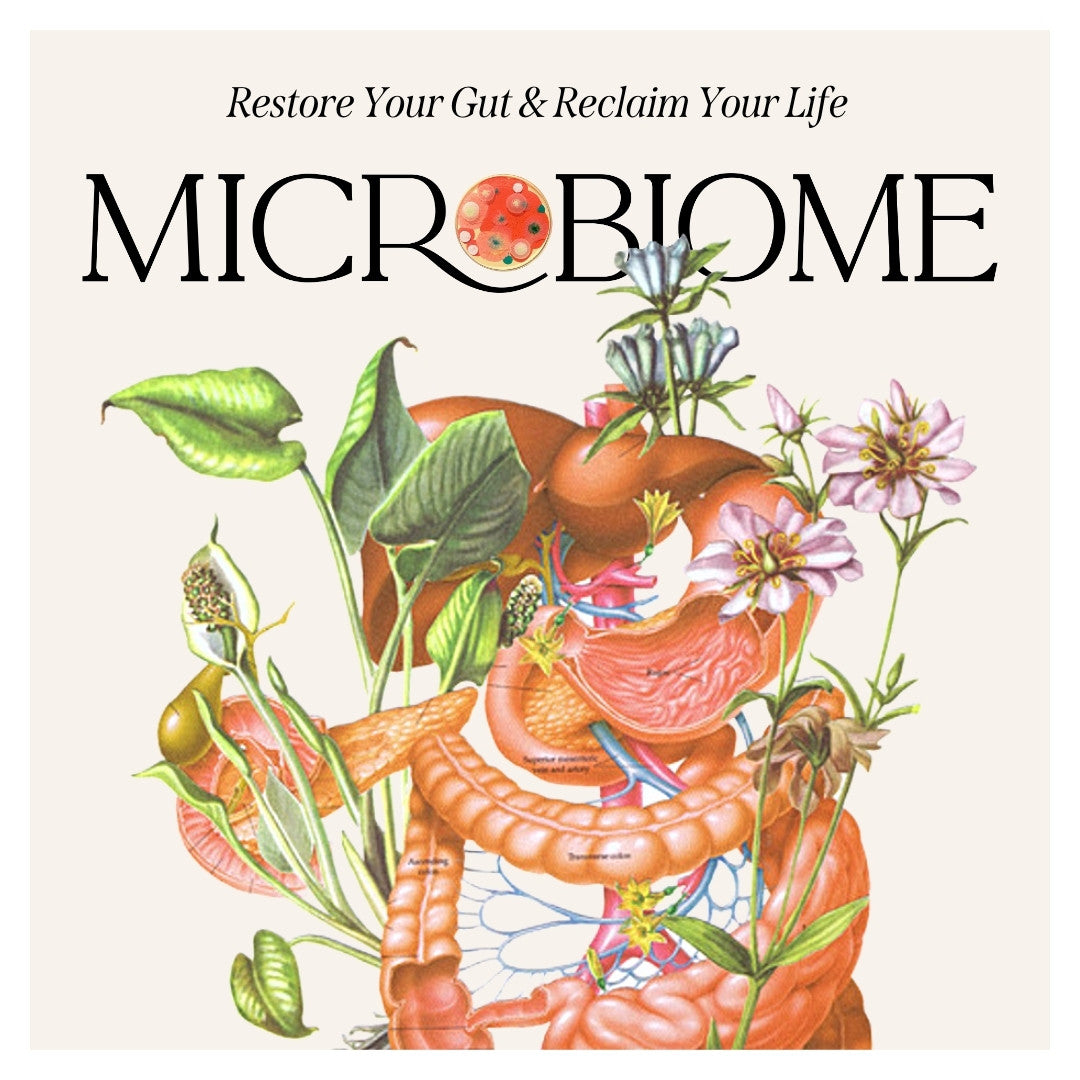

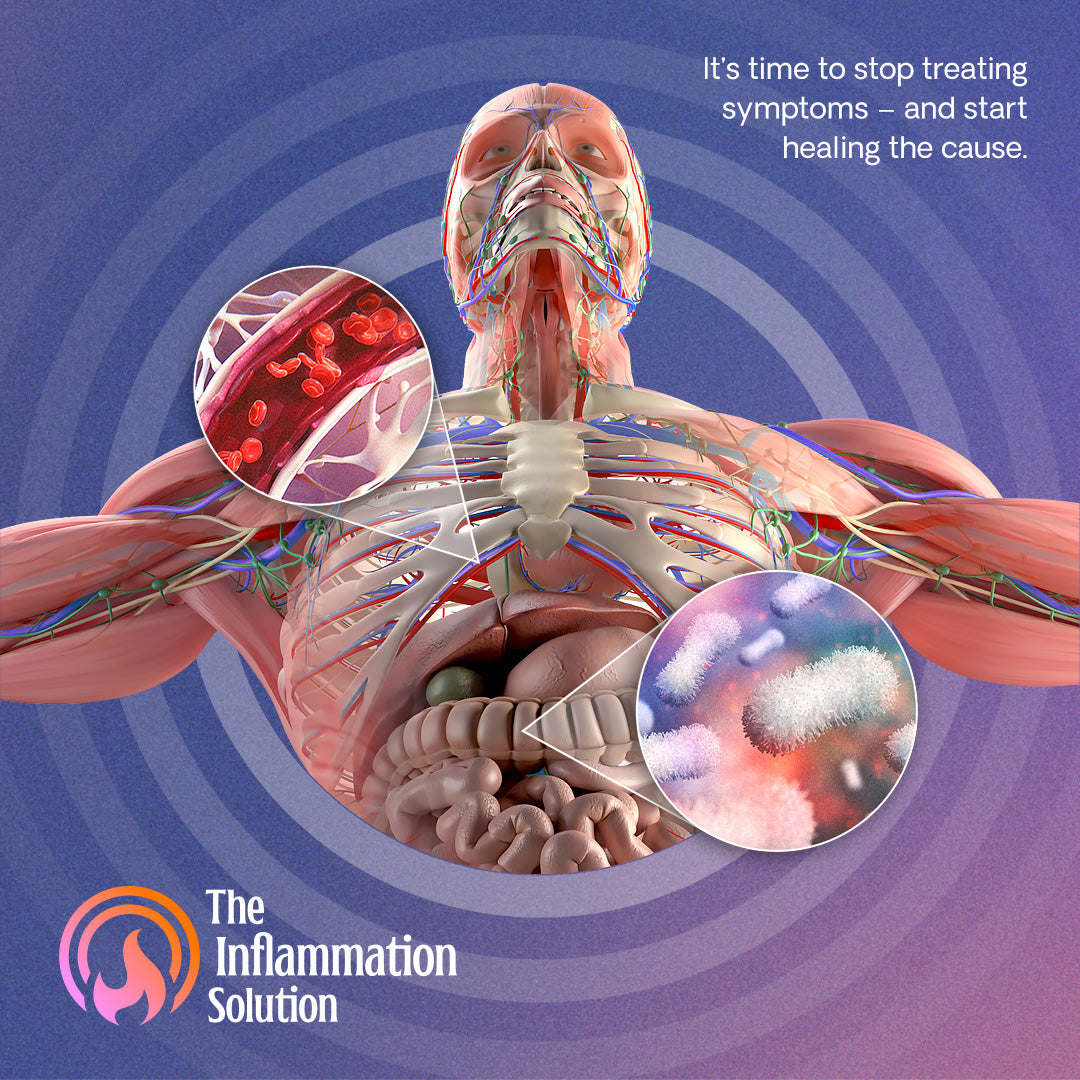
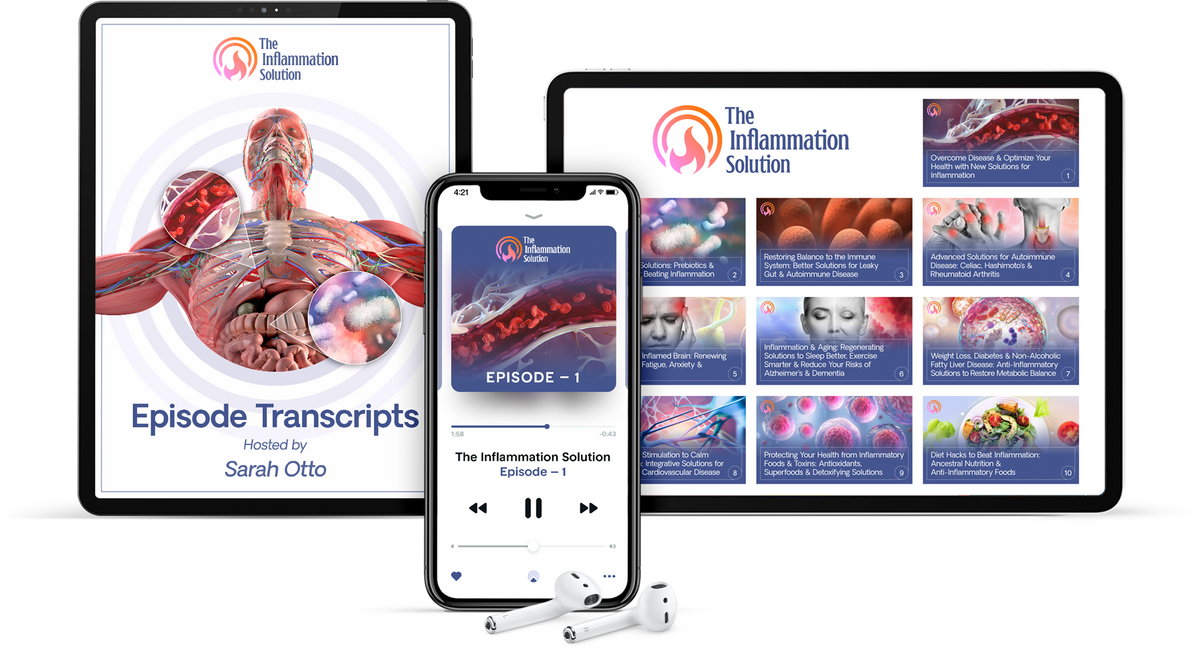
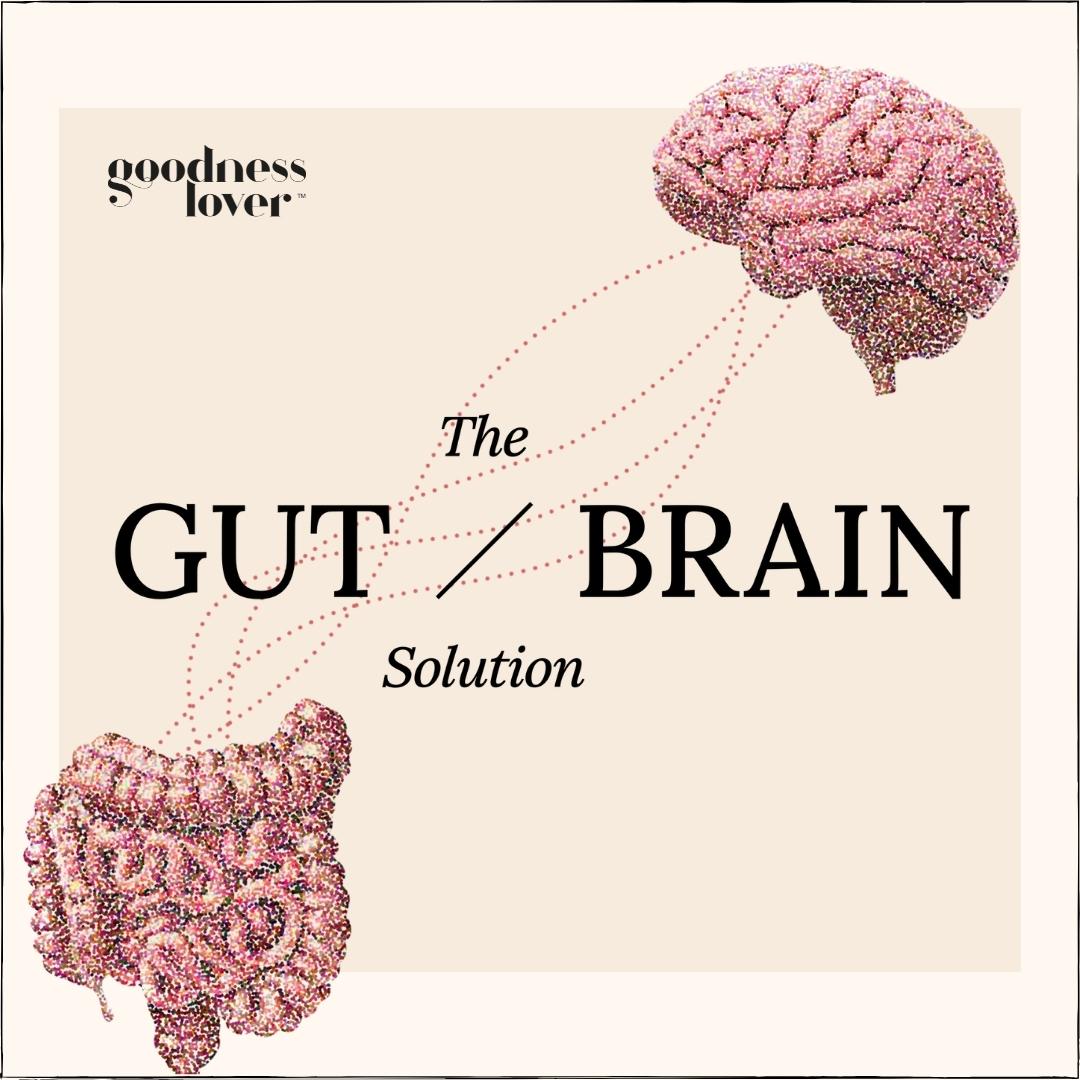

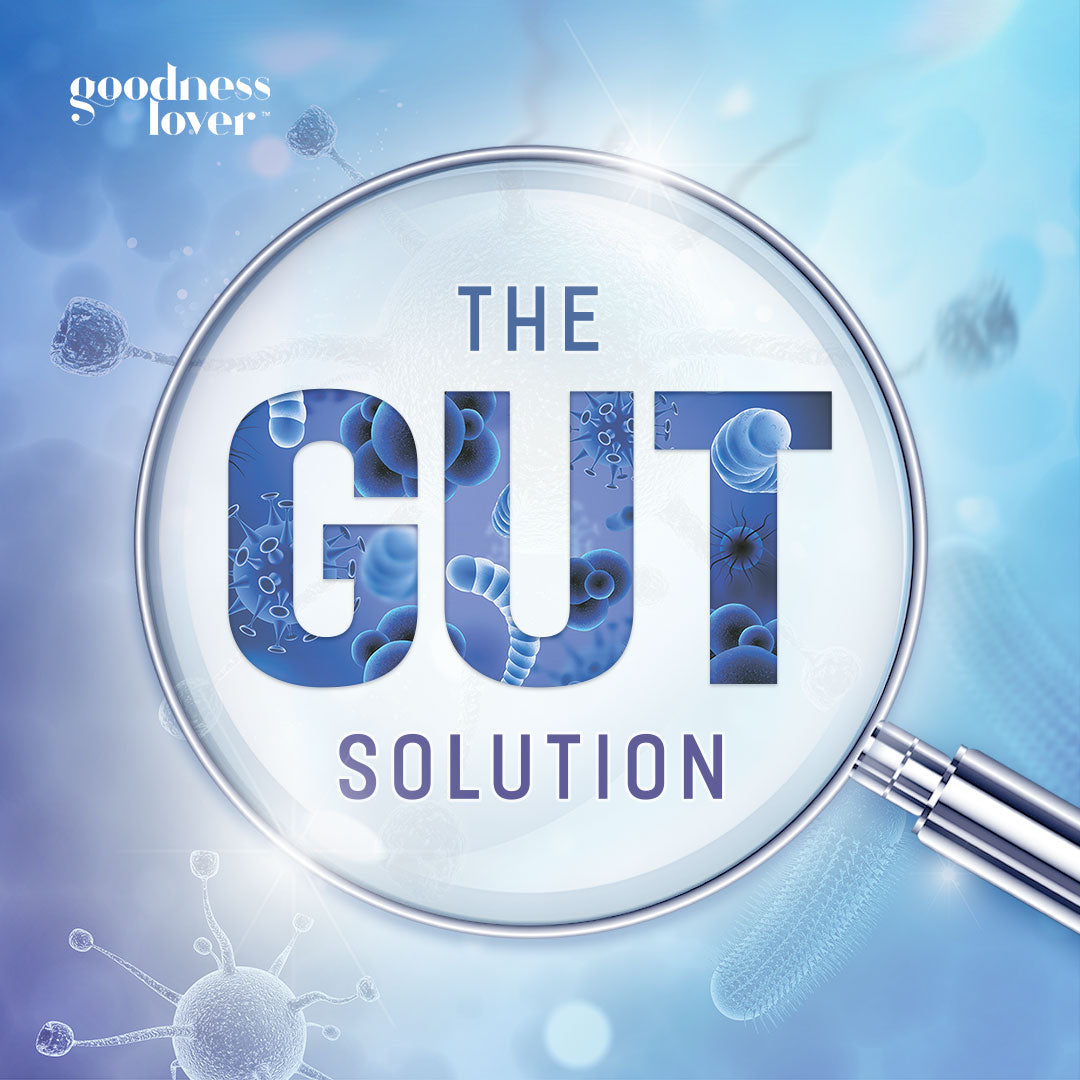
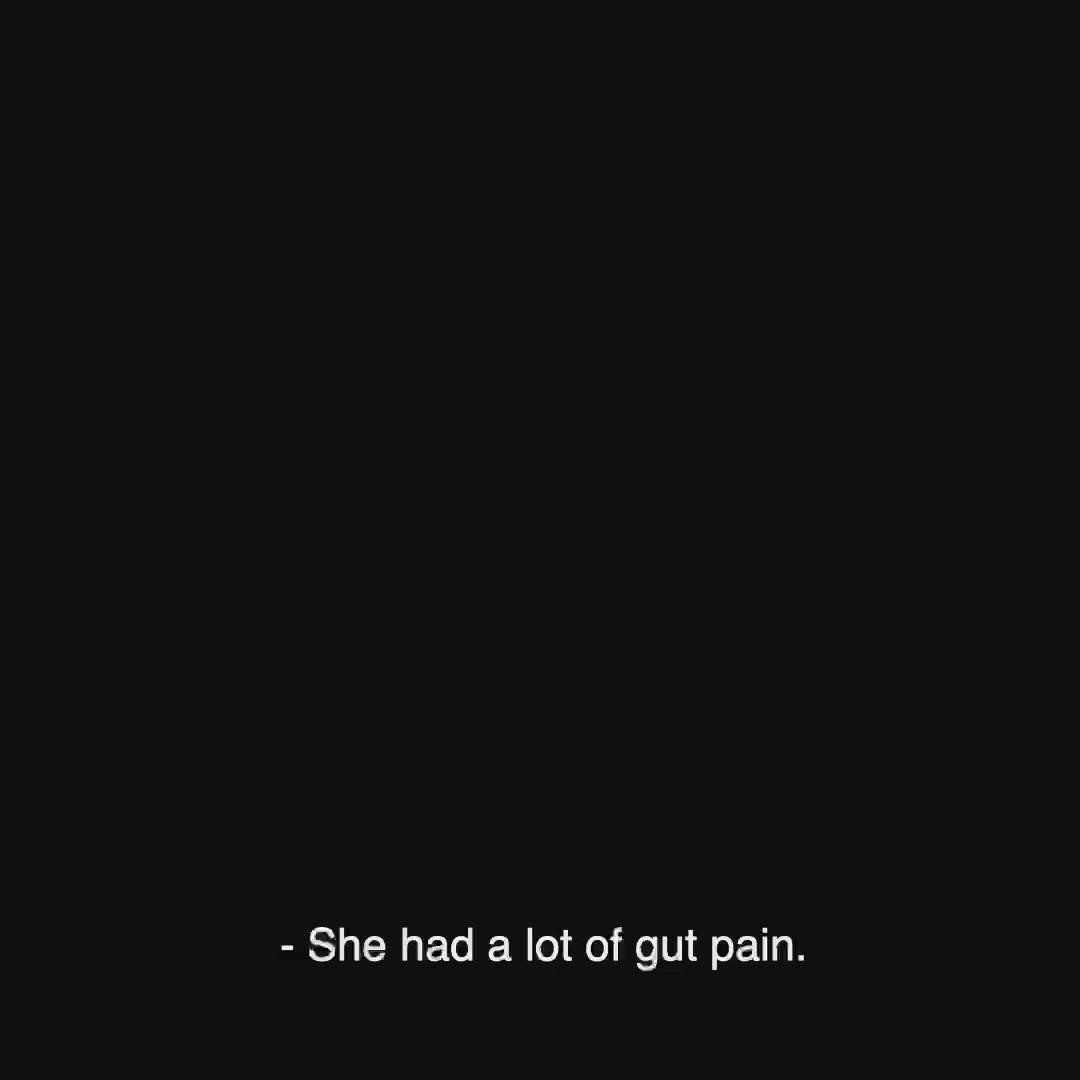
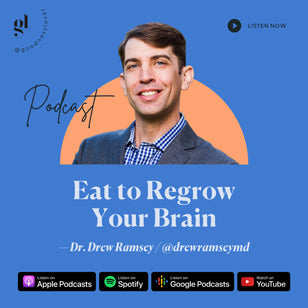
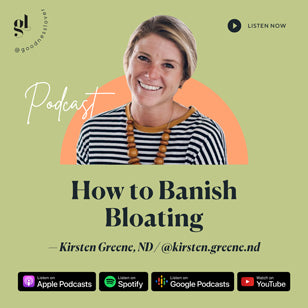

What Do You Think? Comment Below: